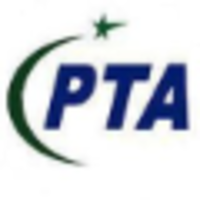PTA strongly reacts to report on internet freedom
 Telecommunication Authority (PTA) has strongly protested with Freedom House, a US-based organisation, while terming its report on Pakistan regarding internet freedom heavily biased and one-sided.
Telecommunication Authority (PTA) has strongly protested with Freedom House, a US-based organisation, while terming its report on Pakistan regarding internet freedom heavily biased and one-sided.
The PTA through a letter conveyed its concerns to the Freedom House and advised the organisation to suitably amend the report, and in future review the findings of the report before publication and also seek opinion of PTA and other relevant stakeholders to make the report more credible.The PTA stated, “With reference to Freedom House report on Pakistan regarding internet freedom, Pakistan Telecommunication Authority (PTA) would like to share its concerns as Pakistan has been portrayed unfairly in the report “Freedom on the Net: The Crisis of Social Media” and country report on Pakistan. Most contents of the said report are based on newspaper articles to which the PTA has been responding from time to time as the articles contained inaccurate information. The main report and country report seem heavily biased and one-sided in portraying internet freedom in Pakistan.
“In the main report, it is mentioned on page 9 that Pakistan has denied internet connectivity around elections whereas, data services were only temporarily suspended for a short period of time in certain areas during elections/processions or large public gatherings. This was done under relevant laws to ensure the security of the public.”
The report also mentioned internet surveillance on page 16 that Pakistan has announced a new social media monitoring programme. It was clarified earlier via media statements that Web Monitoring System (WMS) is being deployed by the telecom operators to facilitate in the identification and eradication of grey traffic causing a huge loss to the national exchequer, and PTA’s assigned roles as mandated under Pakistan’s Prevention of Electronic Crimes Act (PECA 2016). Any perception regarding WMS curtailing privacy or limiting the freedom of internet users is false.
The country report on Pakistan was also analyzed and many discrepancies were found. On page 3 that “over 800,000 websites are blocked, including political, religious and social content”, Under PECA 2016, the PTA has been mandated to block/remove unlawful content hosted on the internet. This may include content, that is, blasphemous, indecent, pornographic, defamatory, impersonation, and anti-state etc.
The figures reported here have been misquoted and misattributed to political, religious and other social content. The PTA has blocked more than 830,000 pornographic web links. In the country report, regarding licence renewal policy mentioned at page 9 and alleged obstacles for service providers, once again PTA has already very clearly clarified its position via media statements. It is unfortunate that the report does not mention those. All procedures related to licence renewals were based on established benchmarks, consultations with stakeholders, policy principles and market dynamics of Pakistan so that the government of Pakistan, consumers and Cellular Mobile Operators continue to benefit. This development will not only contribute towards continued provision of better telecom services to the people of Pakistan but will also help in promotion of competition and investment in the telecom sector of Pakistan. Moreover, two licensees have made partial payment as per licence renewal conditions in accordance with court orders. Users continue to be provided uninterrupted services.
With regard to content restriction/blocking mentioned on pages 11-14 of the country report. Under PECA 2016, PTA has been mandated to block/remove unlawful content hosted on the internet. The insinuation as presented on page 14 that “PTA restricts content in a non-transparent and arbitrary fashion” is grossly incorrect. PTA takes necessary action for blocking/removing after thoroughly checking the reported content.
Explicit content such as pornography may be subject to different regulations or may be accessible in other countries; hence their ranking may differ from Pakistan. Political dissent in certain areas was also mentioned at page 12 in the country report. Under Article 19 of the Constitution of Pakistan, 1973, freedom of expression has been guaranteed, subject to any regulation and reasonable restrictions imposed by law in the interest of the glory of Islam or the integrity, security or defence of Pakistan. Moreover, militant groups inciting violence and promoting hate speech on the internet cannot be permitted to do so. PTA is working diligently under the law of the country and only takes action in accordance with the law.
With regard to the government placing restrictions on anonymous connections mentioned on page 24; all social media platforms also discourage anonymous users by removing or restricting such accounts/users since they carry wide implications and security risks. Furthermore, in 2015, as an added authentication step, it was mandated that all SIM cards must be verified through biometric fingerprints.
As already mentioned, it was observed that research for the report was mainly sourced from newspaper articles with non-inclusive approach thus making the whole report unreliable. These newspapers might have published unverified news without corroborating it with PTA, and in many instances PTA has issued rejoinders which have not been reflected in the report. Hence it may be unauthentic to base the performance of a country primarily on news items. In the light of above, it is reiterated that PTA does not endorse the contents of the report. We hope that Freedom House will suitably amend the report, and in future will review the findings of the report before publication and also seek opinion of PTA and other relevant stakeholders to make the report more credible”.
Source : Business Recorder
